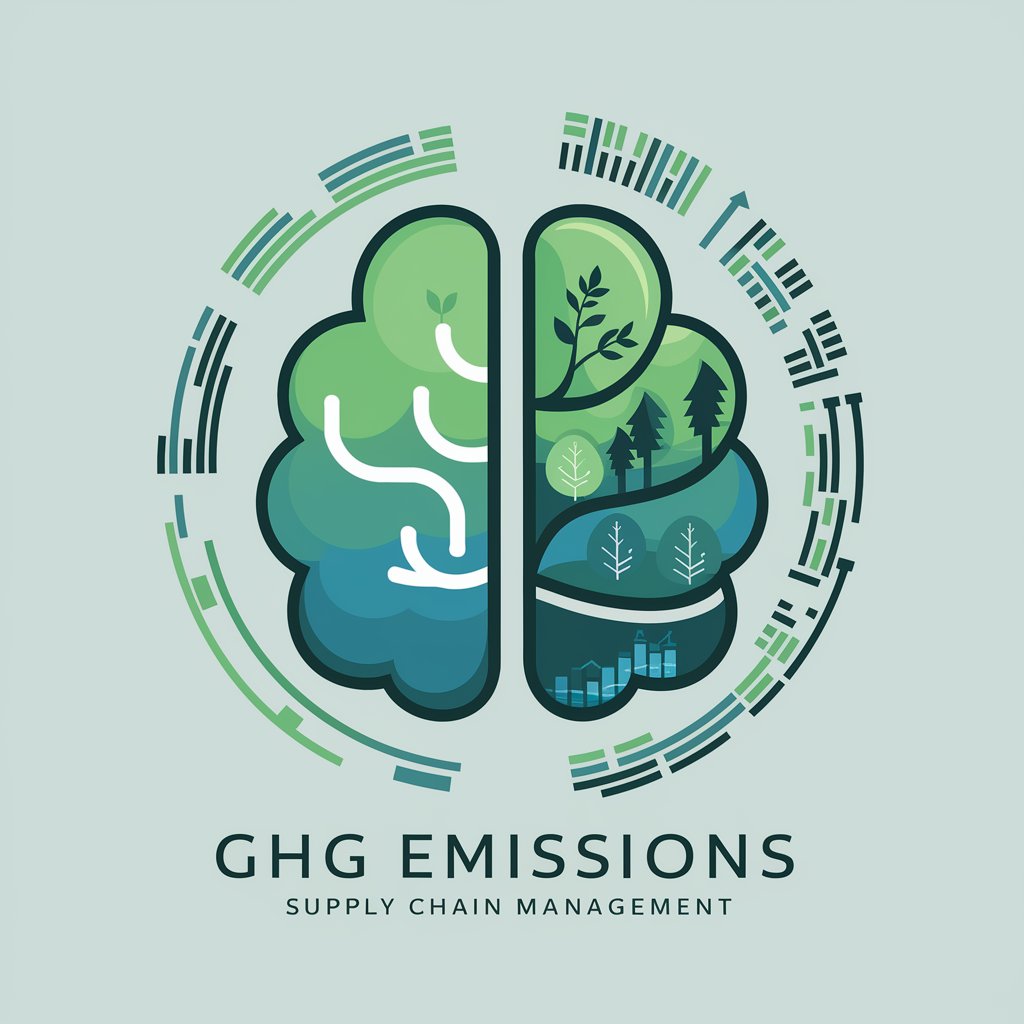8 GPTs for Emissions Tracking Powered by AI for Free of 2026
AI GPTs for Emissions Tracking are advanced computational tools that leverage Generative Pre-trained Transformers to assist in the monitoring, analysis, and management of emissions data. These tools are particularly designed to cater to the needs of emissions tracking, providing accurate, real-time insights into carbon footprint, greenhouse gas emissions, and other environmental impacts. By utilizing the power of AI and machine learning, GPTs offer tailored solutions that can adapt to a wide range of tasks related to emissions tracking, from simple data collection to complex predictive analytics, making them invaluable in the fight against climate change.
Top 8 GPTs for Emissions Tracking are: Ecoflexx Think Tank,Eco Analyst,GHG Emissions,Net Zero Industries,GHG GPT,Carbon Chat (Beta),Carbon Footprint Calculator,Carbon Budget Tracker
Ecoflexx Think Tank
Empowering Sustainable Decisions with AI

Eco Analyst
Empower sustainability with AI analysis.

GHG Emissions
Empower your sustainability with AI-driven GHG insights.

Net Zero Industries
Powering Industry Decarbonization with AI

GHG GPT
Empowering sustainability with AI

Carbon Chat (Beta)
Empowering Sustainability with AI

Carbon Footprint Calculator
Empowering eco-friendly lifestyle choices with AI

Carbon Budget Tracker
Empowering businesses with AI-driven carbon management.

Key Characteristics and Capabilities
AI GPTs tools for Emissions Tracking boast a variety of unique features that make them stand out. These include adaptability to handle tasks of varying complexity within the emissions tracking domain, from straightforward data logging to intricate analysis and forecasting. Special features include advanced language understanding for processing natural language inputs, technical support for integrating with existing emissions tracking systems, web searching for the latest environmental regulations and standards, image creation for visualizing data trends, and robust data analysis capabilities to uncover insights from large datasets.
Who Benefits from Emissions Tracking AI Tools
The primary users of AI GPTs for Emissions Tracking include environmental scientists, sustainability officers, policy makers, and businesses focused on reducing their environmental impact. These tools are accessible to novices who require straightforward insights without deep technical knowledge, as well as developers and professionals seeking advanced customization options and the ability to integrate AI capabilities into their existing emissions management systems.
Try Our other AI GPTs tools for Free
Self-help Advice
Explore how AI GPT tools for Self-help Advice can transform your personal development journey with tailored advice, interactive learning, and seamless integration into your self-improvement strategies.
Article Originality
Discover AI GPTs for Article Originality: innovative tools ensuring content authenticity with advanced plagiarism detection and originality verification for writers, publishers, and academics.
Fasting Guidance
Discover personalized fasting guidance with AI GPTs, offering tailored plans, nutritional advice, and real-time support for your fasting journey.
Diet Adjustment
Discover how AI GPTs for Diet Adjustment can revolutionize your approach to nutrition with personalized diet plans, tailored to your health goals and dietary preferences.
UFO Studies
Discover AI GPTs for UFO Studies: cutting-edge tools designed to enhance your understanding and research of UFO phenomena, accessible to enthusiasts and experts alike.
Medical Anonymization
Discover AI-powered GPT tools designed for Medical Anonymization, ensuring patient data privacy while enabling research and analysis.
Enhanced Solutions Through Customized AI
AI GPTs for Emissions Tracking not only offer a versatile range of functionalities but also the potential for customization, enabling them to serve diverse sectors with varying emissions tracking needs. Their user-friendly interfaces facilitate ease of use, while their integration capabilities ensure they can seamlessly fit into existing workflows or systems, making them a powerful ally in environmental sustainability efforts.
Frequently Asked Questions
What exactly are AI GPTs for Emissions Tracking?
They are AI-driven tools that use Generative Pre-trained Transformers to assist in the collection, analysis, and prediction of emissions-related data, facilitating effective emissions management and sustainability practices.
Can non-technical users operate these AI tools?
Yes, these tools are designed with user-friendly interfaces that allow non-technical users to easily navigate and utilize them for emissions tracking without requiring advanced programming skills.
How do these tools support technical users?
For technical users, these tools offer APIs and customization options, allowing them to tailor the AI's functionality to specific requirements or integrate it with other systems for enhanced emissions tracking capabilities.
Can AI GPTs predict future emissions trends?
Yes, by leveraging historical data and current inputs, these tools can analyze patterns and predict future emissions trends, aiding in strategic planning and mitigation efforts.
Are these tools compatible with existing emissions tracking systems?
Many AI GPTs for Emissions Tracking are designed to be compatible with or easily integrated into existing emissions tracking and management systems, enhancing their capabilities with AI-driven insights.
What kind of data do these AI tools analyze?
They can analyze a wide range of data, including carbon footprints, greenhouse gas emissions, energy usage, and other relevant environmental impact metrics.
Do these tools provide real-time emissions tracking?
Yes, one of the key advantages of these AI tools is their ability to provide real-time monitoring and analysis of emissions data, enabling immediate insights and actions.
How can businesses benefit from AI GPTs for Emissions Tracking?
Businesses can use these tools to monitor their environmental impact, comply with regulations, identify areas for improvement, and demonstrate their commitment to sustainability to stakeholders.